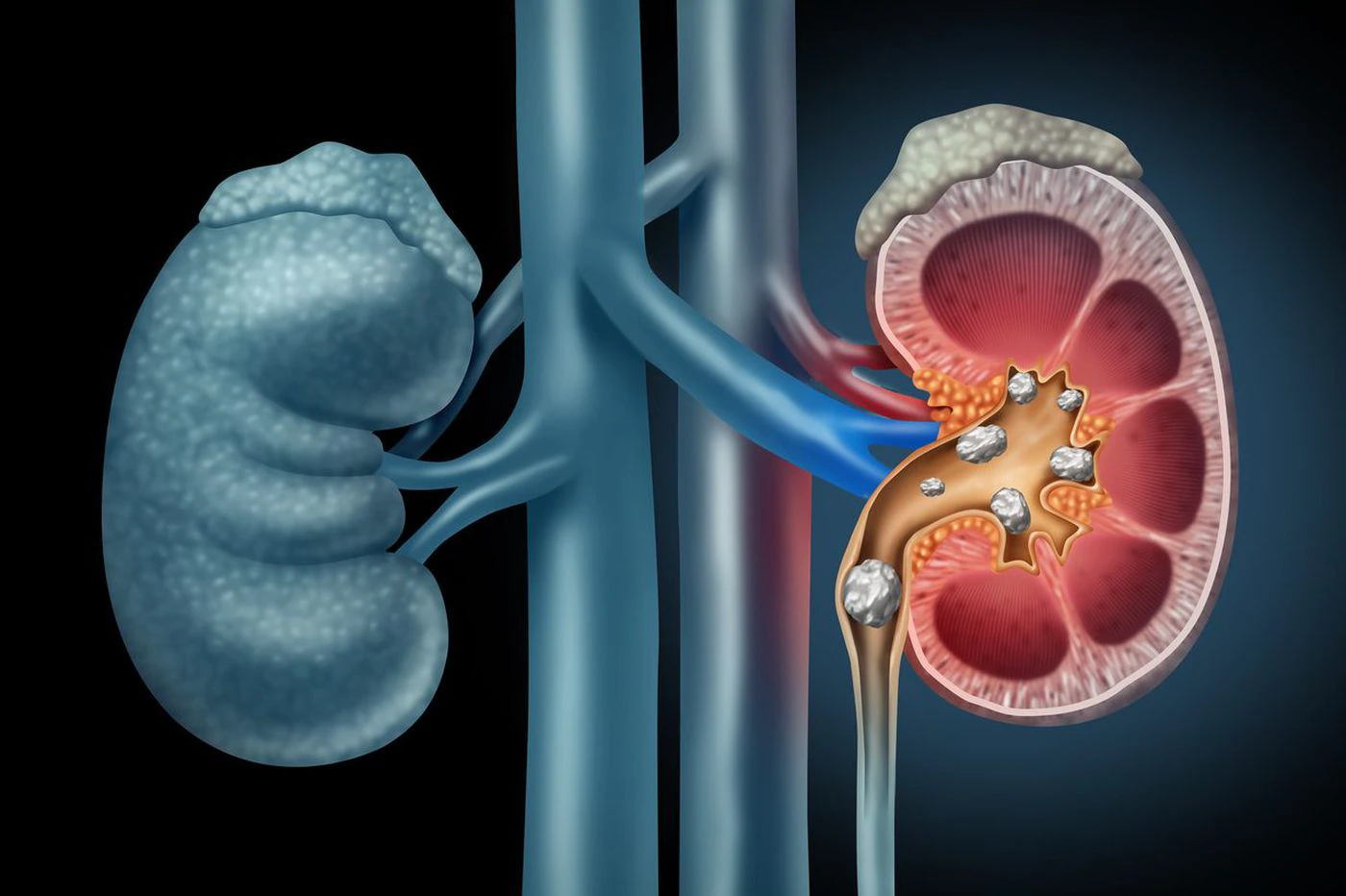A kidney stone is a hard mass formed by urine crystals. Natural substances in urine prevent stones from developing and creating issues in many individuals. There is no one definite technique to avoid kidney stones, especially if the problem runs in your family. Dietary and lifestyle modifications, may help minimise your risk for kidney stone.
How are kidney stones identified by medical professionals?
When diagnosing kidney stones, medical experts consult your medical history, do a physical examination, and order lab and imaging tests.
If you have a medical history of any disorders it increase the risk of kidney stones, a medical practitioner will inquire. In addition, the medical expert could inquire about your usual diet and whether kidney stones run in your family. A physical exam generally involves the medical expert looking over your body. You will be questioned by the medical expert about your symptoms.
Lifestyle changes that can help you prevent kidney stones
Making little changes to your existing dietary and nutritional plan may help you avoid kidney stones.
1. Drink plenty of water
Drinking plenty of water is essential in passing kidney stones and avoiding new ones from developing. The liquid not only flushes out toxins, but it also helps transport stones and grit through the urinary tract. Although water alone may be sufficient, the addition of some substances may be advantageous. Drink one 8-ounce glass of water right after swallowing any flavoured medication. This might aid in the passage of the substances through your system.
2. Eat more calcium-rich foods
It’s crucial to consume calcium- and oxalate-rich meals at the same time while you’re eating. Kidney stones are less likely to develop because oxalate and calcium are work together in the stomach and intestines before the kidneys start processing. Yoghurt, low-fat cheese, and low-fat milk are all excellent sources of calcium.
3. Control sodium Intake
More sodium in your diet raises your risk of kidney stones. Calcium cannot be returned from the urine to the blood when there is too much salt in the urine. Due to the increased calcium in the urine, kidney stones may develop. A component of salt is sodium. Many preserved, packaged, and quick meals include sodium. It may be found in a variety of meats, spices, and sauces.
4. Eat less protein from animals
Consuming animal protein may make kidney stones more likely to occur. You may be advised by a health care provider to consume less animal protein, including poultry, pork, and beef, particularly organ meats, eggs, milk, dahi, cheese, and other dairy products.
You still need to ensure that you receive enough protein, even if you do need to restrict how much protein are consuming each day. Beans, dried peas, and lentils are plant-based foods that are strong in protein but is low in oxalate, so you might want to substitute them for part of the meat and animal protein you regularly consume. Consult a health care provider for advice on how much total protein you should consume and whether more of it should come from animal or plant sources.
5. Do not take Vitamin C supplement
Kidney stones may develop as a result of vitamin C (ascorbic acid) intake, particularly in men. Men who used large dosages of vitamin C supplements doubled their chance of developing kidney stones. Researchers disagree that dietary vitamin C poses the same danger.
6. Try home remedies
Basil leaves, watermelon juice, Cardamom, Pomegranate juice, Cucumber are very much helpful in curing kidney stones.
How are kidney stones handled by medical professionals?
According to their size, location, and kind, kidney stones are often treated by medical specialists.
Your urinary tract may be able to pass small kidney stones untreated. A medical practitioner could instruct you to collect kidney stones in some specific container if you can pass them. To identify the sort of kidney stone, a medical practitioner will submit it to a lab. If you are able to move a kidney stone along, a medical practitioner can urge you to drink lots of fluids. Additionally, the medical expert may recommend painkillers.
Large kidney stone treatment
Urgent treatment may be required for kidney stones that are larger, clog your urinary tract, or are extremely painful. You might need to go to the hospital and receive fluids through an IVF you’re vomiting and dehydrated.
Surgeries are offered for stones that do not come out on their own and your urologist will take a decision on what kind of surgery is required based on various parameters.
Avoid waiting until it is too late. You may receive painless, safe kidney stone treatment from our team of specialists in Delhi NCR. To make an appointment with the top kidney specialist in Delhi contact us now.


